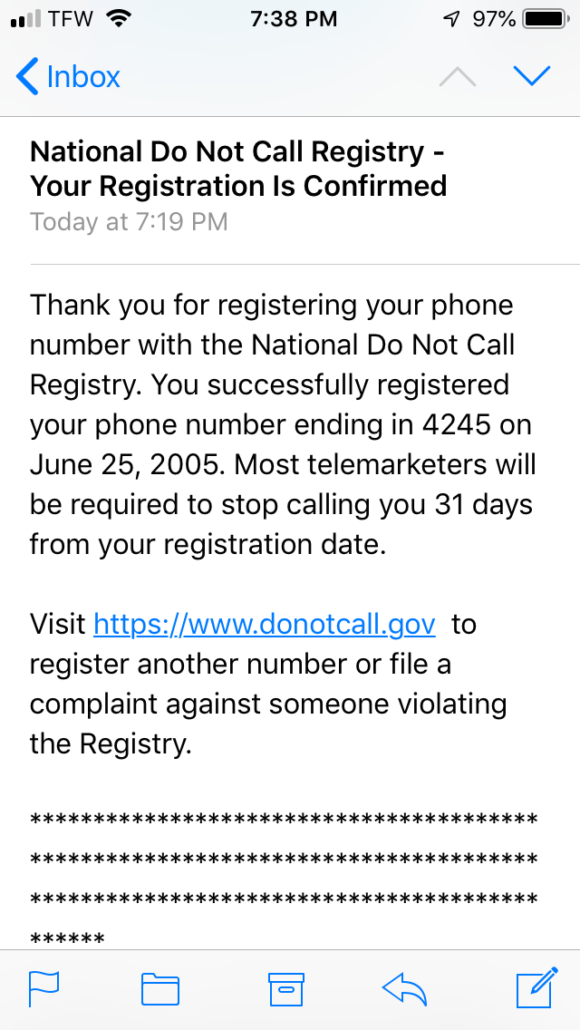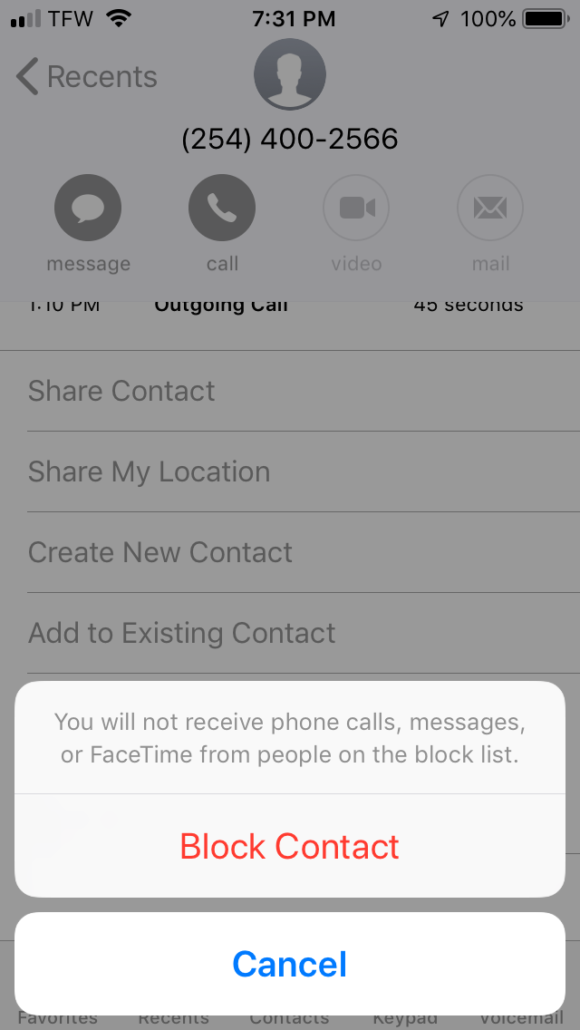Know When to Outsource IT Services
Some companies benefit more from outsourcing their IT rather than having an in-house team. Learn if IT outsourcing is right for you.
Some companies benefit more from outsourcing their IT rather than having an in-house team. Learn if IT outsourcing is right for you.
PCR Business Systems was recently SOC 2, Type 2 certified. Learn why you should only work with SOC certified Akron IT services providers.
On May 1, several members of the PCR team and their families began a challenge to start moving! The goal was to be as active as possible throughout the month of May…
Unfortunately, due to the Coronavirus many employees have been forced to work from home, or may be working from home in the near future. If you find yourself in this situation it’s important to remember to follow the best IT security practices when working from home to not put your company at risk of an online virus or cyberattack.
Working remotely can be challenging because you likely don’t have the same security safeguards in place at home as you do in the office. In addition, most people have multiple devices connected to their home Wifi, including personal computers, smartphones, game consoles, etc. These can all offer hackers a gateway into your home Wifi which can then give them a backdoor into the corporate device you are working from. It’s up to you to implement your own layers of security controls at home to prevent your company’s data from being breached.
Cyber criminals love to prey on companies when they are most vulnerable, and one of the weak spots they look for is employees who are not following the best IT security practices for working remotely.
Below is a list of things you can do to prevent cyberattacks while working remotely. You should follow these guidelines whenever you are logged into a corporate laptop or phone, even if it’s just to check a few emails.
Only Use Secure Wifi
Protect Your Workspace
Secure Your Devices
Read about having a secure bring your own device policy >>
Use Common Sense
Report Any Security Issues Immediately
Want to learn more about working from home safely? Read about Threat Remediation while working from home >>
Fill out the form below or contact PCR Business Systems if you have any questions about setting up a secure workspace for your remote employees.
We are extremely excited to add another talented member to the PCR Business Systems family. Angela is a strong, focused, intelligent, and positive person who will fit in great with our team and business partners.
Here are a few things about Angela to help you get to know her better:
A few Questions for Angela:
Q: What is the last film you saw at the cinema?
A: Frozen 2 (with my girls)
Q: What is your middle name?
A: Marie
Q: What is your favorite TV show?
A: I don’t watch TV.
Q: What do you usually have for breakfast?
A: Coffee, coffee, and more coffee!
Q: Favorite cuisine?
A: I like it all!
Q: What is your favorite chip flavor?
A: Chocolate chips :)!!!
Q: What is your favorite CD at the moment?
A: The Lumineers
Q: What car do you drive?
A: Honda Pilot
Q: Favorite Sandwich?
A: Cheeseburger!
Q: What characteristics do you dislike in yourself (in others)?
A: I try and see the positive in myself and in others.
In businesses since 2004, PCR is the trusted Managed IT Provider for Akron area businesses. Learn more at pcrbusiness.com.
My phone rings at four a.m. jolting me from a peaceful dream straight into a panic. I race to answer it. Who’s calling me this early? Something terrible must have happened!
I glance at the screen and see my hometown area code. I don’t recognize the number, but that doesn’t mean it’s not the police or the hospital calling with some awful news.
I reluctantly answer the phone, expecting the worst. “Hello?”
“Your auto insurance is about to expire. Touch seven or stay on the line to speak to…”
I thumb at the hang-up phone icon with rage, not listening to the conclusion of the prerecorded message. I try and fall back to sleep but can’t. My adrenaline is pumping. My heart rate has spiked. I lie in bed wondering what kind of person or business would stoop so low as to spam fellow humans with robocalls.
Telemarketers are bad enough, but at least there’s a real person on the other end of the line that you yell at. Robocalls don’t even give you that satisfaction. Now that I can’t sleep, I lie in bed searching the internet for ways to make these calls stop for good.
Here’s what I found.
According to a call-blocking company called YouMail, approximately 48 billion robocalls were made to Americans in 2018, with even more being placed this year. In October alone, Americans were bombarded with 5.7 billion robocalls stemming from political pitches to fake IRS scams.
![]()
Complaints to the FCC and Federal Trade Commission have been pouring in for years topping the list of consumer complaints. In December, the House passed The Pallone-Thune Telephone Robocall Abuse Criminal Enforcement and Deterrence Act, aka the Traced Act— aimed to put an end to robocalls for good.
According to House leaders the new legislation “combats the robocall epidemic by ensuring every call Americans receive will be verified and can be blocked at no extra cost to consumers. It also gives the Federal Communications Commission and law enforcement the authority to quickly go after scammers.”
(Detailed information can be found here).
But will this new law stop those intrusive robocalls from waking us up at night and pestering us during our lunch breaks?
Time will tell, but I’m not going to lose more sleep waiting around to find out. Just as cyber crooks are finding new ways to hack into our networks with ransomware and viruses, the people behind the robocalls will likely do everything they can to scoot around these new regulations and continue to badger us with their scams and bogus offers.
So what can we do to proactively block robocalls and keep us from smashing our new smartphones against the wall? Here are a few tips I found that will hopefully help.
1). Add your number to the FCC’s Do Not Call list by visiting donotcall.gov. According to the FCC, once you add your number, “Telemarketers must remove your numbers from their call lists and stop calling you within 31 days from the date you register.”
This is the first step I took when doing research for this article. I entered my number on the Do Not Call list, and then waited several minutes before I received a confirmation email. Once the email I arrived I was excited to open it. Could stopping robocalls really be this simple?
Then I read the email stating that I had already registered my phone…back in 2005!
Epic fail, FCC. I must have received over a thousand calls from telemarketers in the past 15 years.

2). Manually block numbers that have come from telemarketers and robocalls. All smartphones have this option. Depending on the type of phone you have the process should be simple. On my iPhone I simply click the information icon to the right of the number, and then scroll down to the bottom and click where it says “Block this Caller.”
Unfortunately, this also hasn’t seemed to stop the problem for me. It has limited it, but the calls have kept coming despite blocking over 150 numbers on my phone.

3) Use a third-party app and utilize your phone’s features. All four major wireless carriers offer some type of call blocking feature to their customers, and most smartphones offer some kind of special blocking tool. For example, Apple’s iOS 13 has an option to “Silence Unknown Callers” which will send unknown numbers directly to your voicemail.
To turn on Silence Unknown Callers, simply go to your iPhone Settings, then Phone, then scroll down and select “Silence Unknown Callers.” It’s that simple.
This is a great option for avoiding robocalls, but be aware, this could also cause you to miss important calls from your doctor or your child’s school. Callers will show up on your recent calls list, but if it’s an emergency, you may not realize they have called in time.
Another step you can take is to download a third-party app to block robocalls. Hiya is a free app for Android and iOS that has received good reviews. Other popular apps you may want to research include Nomorobo (used by Verizon), YouMail, and RoboKiller, just to name a few.
4). Follow the FCC’s best practices to reduce robocalls. These are mostly common sense, but it can’t hurt to remind yourself of these simple rules:
(Further tips can be found on the FCC website).
5) Trust that the Traced Act will do what it claims. In practice, The TRACED Act would make it a law that phone companies block robocalls free of charge to customers, while also ensuring that calls originate from real numbers.
Let’s hope this is true. In the meantime, it can’t hurt to take a few extra steps on our own to try and stop robocalls from adding unnecessary frustration to our lives.
